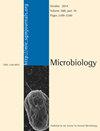药物精神病学和肠道微生物组:精神药物治疗双相情感障碍的系统综述。
摘要
尽管双相情感障碍是最常见和最令人衰弱的情绪障碍之一,但它经常被误诊和治疗不足。其发病机制复杂,患者差异显著,治疗效果不一致。脑-肠-微生物轴通过调节神经递质分泌、肠道肽和全身炎症在双相情感障碍中起关键作用。然而,精神药物治疗影响肠道微生物群组成的机制及其对临床结果的影响仍然知之甚少。本系统综述评估了精神药物对肠道微生物群的影响及其在双相情感障碍治疗结果中的潜在作用。在Ovid MEDLINE, Embase, APA PsycINFO, Scopus和PubMed上进行综合检索,得到314篇文章,其中12篇符合纳入标准(最后一次检索:2024年8月13日)。这些研究包括接受精神药物治疗的成人I型或II型双相情感障碍患者;进行组间比较(如健康对照、服药对照和未服药对照)调查肠道微生物组变化的研究;对精神病特征、共病焦虑或既往治疗反应没有限制。排除包括个别病例报告、不完整的会议提交或缺乏疗效分析的早期终止研究。采用Cochrane ROBINS-I V2工具测量偏倚风险,采用GRADE方法评价纳入研究证据的确定性。两位作者独立地将数据提取到Excel电子表格中,对人口统计学和临床特征进行分类,描述微生物组分析方法,并总结治疗后肠道微生物组变化的发现。考虑到研究方法和结果测量的高度可变性,所有细节都是在没有数据转换的情况下报告的。数据综合显示,包括喹硫平和锂在内的精神药物治疗通过增加支持肠道健康的有益细菌和与代谢功能障碍相关的致病菌的丰度来影响肠道微生物群。值得注意的是,女性患者在精神药物治疗后表现出更显著的微生物多样性变化。此外,接受精神药物治疗的患者显示出与多药抗生素耐药性相关的肠道细菌患病率增加。在接受喹硫平治疗的双相患者中,与无反应者相比,反应者(抑郁症状评分改善的患者)表现出与健康个体更接近的肠道微生物群特征。反应者也表现出与健康受试者相似的神经连接模式。这些发现强调了精神药物对肠道微生物群的复杂双重影响,对肠道和心理健康都有潜在的影响。虽然有益细菌的丰富可能有助于肠道健康,但抗生素耐药性和代谢破坏性细菌的增加令人担忧。研究的局限性包括方法学的异质性、其他精神疾病的纳入、由于统计分析不完整或对混杂因素控制不足而导致的一些研究的高偏倚风险,以及由于作者重叠而引起的研究人群的潜在重复。进一步研究阐明这些微生物转移的功能后果及其对治疗效果的影响是必要的。然而,这篇综述强调了利用肠道微生物群概况为双相情感障碍的个性化治疗策略提供信息、优化治疗结果和最小化副作用的潜力。本研究已在Open Science Framework (https://doi.org/10.17605/OSF.IO/3GUZR)注册。Despite being one of the most common and debilitating mood disorders, bipolar disorder is often misdiagnosed and undertreated. Its pathogenesis is complex, with significant patient variability and inconsistent treatment effectiveness. The brain-gut-microbiota axis plays a critical role in bipolar disorder by modulating neurotransmitter secretion, gut peptides and systemic inflammation. However, the mechanisms by which psychotropic treatments influence gut microbiota composition and their implications for clinical outcomes remain poorly understood. This systematic review evaluated the impact of psychotropic drugs on gut microbiota and their potential role in bipolar disorder treatment outcomes. A comprehensive search across Ovid MEDLINE, Embase, APA PsycINFO, Scopus and PubMed yielded 314 articles, of which 12 met the inclusion criteria (last search: 13 August 2024). The studies included were those on adults with bipolar disorder type I or II receiving psychopharmacological treatments; those with group comparisons (e.g. healthy controls vs. medicated vs. non-medicated) investigating gut microbiome changes; and no restrictions applied to psychotic features, comorbid anxiety or prior treatment responses. Exclusions involved individual case reports, incomplete conference submissions or early terminated studies lacking efficacy analysis. Cochrane ROBINS-I V2 tool was used to measure the risk of bias, and the GRADE approach was utilized to rate the certainty of evidence in included studies. Two authors independently extracted data into Excel spreadsheets, categorizing demographic and clinical characteristics, describing microbiome analytic methods and summarizing findings on gut microbiome changes post-treatment. Given the high variability in methods and outcome measures across studies, all details were reported without data conversion. Data synthesis reveals that psychotropic treatments, including quetiapine and lithium, influence gut microbiota by increasing the abundance of beneficial bacteria supporting gut health and pathogenic bacteria linked to metabolic dysfunction. Notably, female patients exhibited more significant changes in microbial diversity following psychotropic treatment. Additionally, patients treated with psychotropics showed an increased prevalence of gut bacteria associated with multidrug antibiotic resistance. In bipolar patients treated with quetiapine, responders - those experiencing improved depressive symptom scores - displayed distinct gut microbiome profiles more closely resembling those of healthy individuals compared with non-responders. Responders also exhibited neural connectivity patterns similar to healthy subjects. These findings underscore the complex dual impact of psychotropic medications on gut microbiota, with potential consequences for both gut and mental health. While the enrichment of beneficial bacteria may support gut health, the rise in antibiotic-resistant and metabolically disruptive bacteria is concerning. Study limitations include methodological heterogeneity, inclusions of other psychiatric disorders, a high risk of bias in some studies due to incomplete statistical analyses or insufficient control for confounding factors and potential duplication of study populations arising from overlapping authorship. Further research is essential to elucidate the functional consequences of these microbial shifts and their influence on treatment efficacy. Nevertheless, this review highlights the potential of utilizing gut microbiota profiles to inform personalized treatment strategies, optimize therapeutic outcomes and minimize side effects in bipolar disorder. This study was registered with Open Science Framework (https://doi.org/10.17605/OSF.IO/3GUZR).

 求助内容:
求助内容: 应助结果提醒方式:
应助结果提醒方式:


